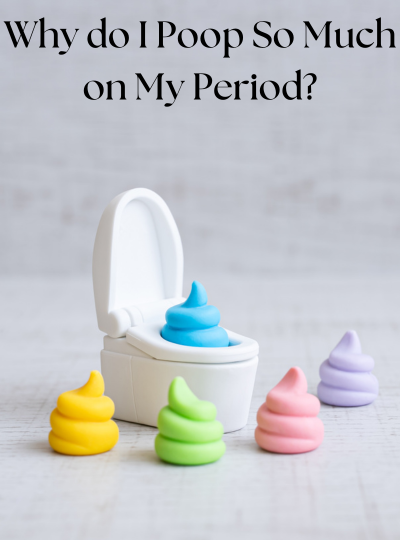Can Stress Delay Your Period?
Yes, stress can potentially delay your menstrual cycle. Stress can affect the hormonal balance in your body, particularly the hormones involved in the menstrual cycle. When you're under stress, your body may produce higher levels of stress hormones like cortisol, which can interfere with the regular production and regulation of reproductive hormones such as estrogen and progesterone.
These hormonal changes can impact the normal menstrual cycle, leading to irregularities in the timing of your period. Stress-related menstrual irregularities can include delayed periods, missed periods, or changes in the length and intensity of your menstrual flow.
It's important to note that while stress can be a contributing factor, other factors such as changes in weight, intense exercise, illness, and certain medical conditions can also affect the menstrual cycle. If you're experiencing persistent irregularities in your menstrual cycle or have concerns about your reproductive health, it's advisable to consult with a healthcare professional for a thorough evaluation.
Also read - How to delay or stop your period?
Stress and its Impact on Hormone Levels.
When you're stressed, your body responds by releasing more cortisol, a hormone that helps your body deal with stress. This increase in cortisol levels can have a significant impact on the delicate interplay between two key hormones in your body: estrogen and progesterone.
These hormones play a crucial role in regulating your menstrual cycle. Estrogen is responsible for the growth of the uterine lining, while progesterone helps maintain it and prepares the body for a potential pregnancy. Normally, these hormones work together in a carefully coordinated dance to ensure a smooth menstrual cycle.
However, when you're under stress, the elevated cortisol levels can throw off this hormonal balance. Cortisol and progesterone compete for the same receptors in the body, and when cortisol is high, it can disrupt the usual effects of progesterone. This imbalance can lead to changes in the timing and regularity of your menstrual cycle.
In short, stress acts like a disruptor, interfering with the harmonious interaction between estrogen and progesterone. This disruption can result in irregularities or alterations in your menstrual cycle, making it essential to manage stress for overall reproductive health.
Also read - Can a UTI delay your period?
Is there a Link between Periods and Stress?
Studies indicate a clear link between stress and periods. While acute stress might slightly delay ovulation, chronic stress can significantly impact your menstrual cycle. Research in Psychoneuroendocrinology (2019) and Human Reproduction (2021) suggests chronic stress increases the risk of irregular periods, delayed ovulation, and even missed periods due to hormonal disruptions.
Additionally, Frontiers in Neuroscience (2018) highlights how stress can exacerbate PMS symptoms. The mechanisms at play involve the complex interplay between stress hormones, the HPO axis, and inflammation. While individual experiences vary, understanding these connections empowers you to manage your cycle better. If you're concerned about stress impacting your periods, remember you're not alone, and consulting a healthcare professional for personalized guidance is crucial.
Also read - Can sex make your period come early?
Difference between Acute and Chronic Stress.
Stress occurs when the body is placed under mental, emotional, or physical pressure. It can be caused by anything from a tough day at work to a more serious event like a death in the family. While some stress can be normal and even beneficial, too much stress over a long time can have negative effects on the body and mind.
Acute stress is a temporary stress response that occurs in response to a specific, short-term stressor, such as a job interview or a major exam. It typically lasts for a few minutes to a few hours, depending on the severity of the stressor. Acute stress can help the body prepare for a challenge and can even boost performance under pressure. However, if the stressor is severe or repeated over a long period, it can lead to chronic stress.
Chronic stress is prolonged stress that lasts for weeks, months, or even years. It can have profound effects on the body and the mind and is associated with a range of physical and mental health problems, such as high blood pressure, depression, anxiety, and autoimmune diseases.
It's important to find ways to manage stress and prevent it from becoming chronic. Activities such as exercise, meditation, deep breathing, spending time in nature and yoga for periods can help regulate stress levels and promote wellness. It's also a good idea to take breaks when you're feeling overwhelmed and to prioritize self-care and relaxation.
How can Chronic Stress Affect Periods?
Ignoring chronic stress isn't just about missing your period. It can have a wider impact on your reproductive health. Research suggests that chronic stress may be linked to an increased risk of fertility issues, polycystic ovary syndrome (PCOS), and even early menopause.
How to Prevent Stress Yourself from Having a Healthy Period?
While eliminating stress might be a fantasy, managing it can help you have good hormonal health. Here are some instruments you can tune:
- Mindfulness practices: Meditation, yoga, and deep breathing can help regulate cortisol levels and promote overall well-being.
- Physical activity: Regular exercise, but not overtraining, can be a great stress reliever and positively impact your hormonal balance.
- Healthy sleep habits: Prioritizing 7-8 hours of quality sleep allows your body to recover and restore hormonal equilibrium.
- Social support: Building a strong support system can provide you with tools and emotional anchors to navigate stressful situations.
When to Consult a Doctor if There’s a Delay in Periods?
Remember, your body is unique, and occasional menstrual irregularities don't necessarily warrant alarm. However, if you experience consistent delays, prolonged missed periods, or other concerning symptoms, seeking medical advice is crucial. A healthcare professional can help identify the underlying cause and recommend personalized treatment options.
Also read - Can I use boric acid on periods?
Why is Stress Management Important for Period Health?
Understanding the link between stress and your period empowers you to be a more active participant in your well-being. By prioritizing stress management, you can not only potentially regain control of your menstrual cycle but also nurture your overall reproductive health. So, put on your self-care headphones, listen to your body's rhythm, and let the melody of health flow freely.
Remember:
- Stress can potentially delay or disrupt your menstrual cycle.
- Acute and chronic stress can impact your hormones in different ways.
- Managing stress can benefit your overall well-being and potentially improve your menstrual health.
- Consult a healthcare professional if you experience persistent menstrual irregularities or have concerns about your reproductive health.
Read more
How to get periods immediately to avoid pregnancy?
Drinks that Reduce Period Cramps
Is Watery Period Blood a Sign of Pregnancy?
Can You Get Waxed During Periods?










